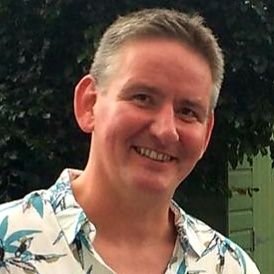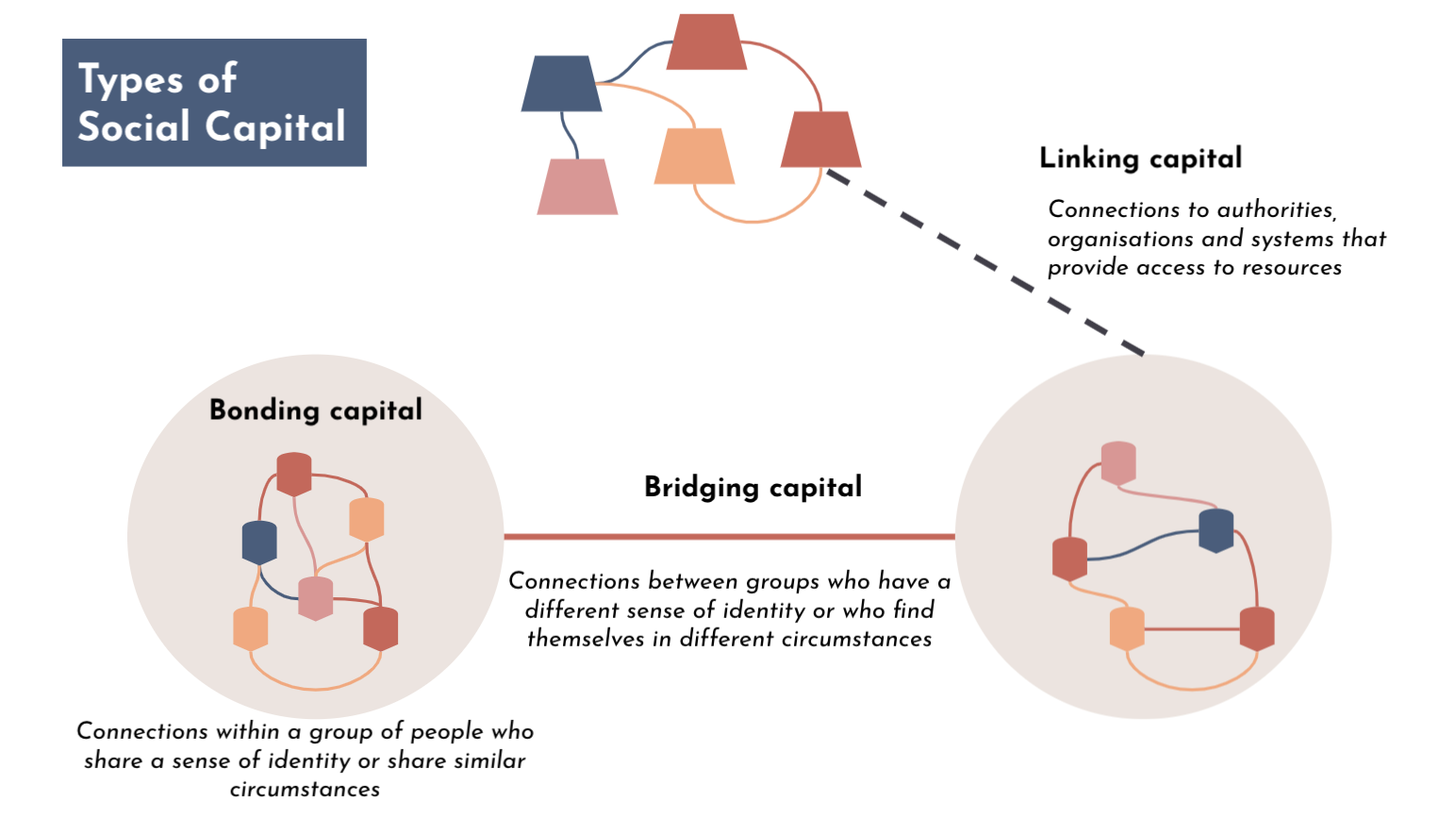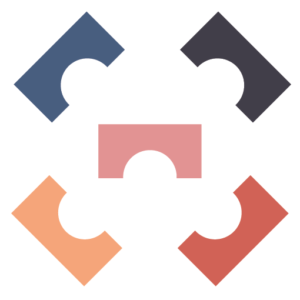
In brief
In this blog, Neil Denton lays out the importance of building bridges across lines of difference as we move into the next stages of the pandemic and shares an invitation to get involved in our Bridge Builders pilot. Neil is a leader in community mediation and conflict transformation, an Independent Community Mediator, and a Professor in Practice with the After Disasters Network at Durham University.

There is a wealth of research about how communities get on with each other after disaster. What we have seen in the last 18 months fits with these models.
The initial stages of a crisis brings people together, especially at a neighbourhood level, and with those whose identity and circumstances we relate to (bonding social capital). However, these connections and collaborations can fade as time goes by, and people begin to acknowledge that their own needs differ from others.
As communities become aware of these differences, the energy generated by the disaster can change from being a force that brings people together, to one that drives people apart.
Perceived or actual inequality about who will benefit from state help, as well as who is being included or excluded from these important discussions about the future, can reinforce the differences in need that communities are starting to come to terms with. People can start feeling and behaving as though they are in competition with each other.
The pandemic has brought inequality into plain sight. We will need to handle the discussions relating to equality and fairness incredibly carefully if we are to prevent creating real harm to community relationships and trust.
We have seen a reduction in connections and collaborations with groups “not like us” (bridging social capital) in the last 12 months. There has been an increase in “out-group” blaming, and as people struggle to overcome the turmoil and trauma of living with a pandemic, many have become tired, frustrated, and quick to anger.
As lockdown restrictions ease, and we once again return to spaces where we encounter “the other” the potential for destructive conflict is real.
We view these destructive potentials within the context of what we believe has been a worrying shift in the quality of public debate in recent years. Debate and disagreement has become more “tribal” and polarised. There is a lot more shouting than listening.
Many of the recent reports about the impact of Covid on community relations highlight the importance of handling difficult debates and disagreement well, avoiding destructive conflict, and creating positive connections between “us” and “them”. Few provide any practical guidance about how to do this.
In conjunction with the Relationships Project, we have recently published the Bridge Builders Handbook.
In producing the Handbook, we have drawn from what we consider to be the best elements of; Conflict Transformation (John-Paul Lederach), Nonviolent Communication (Marshall Rosenburg), Mediation/Peacebuilding (Johan Galtung) and the research that evidences the critical importance of Social Capital to disaster preparation, response and recovery (Daniel Aldrich).
Through the lens of many years of practice – working with communities in conflict and those that have experienced disaster, and finding out what works (by learning from what didn’t) – the Handbook is our attempt to distil good peacebuilding process into a usable step-by-step guide.
We think we have produced a useful resource for community groups, voluntary organisations, faith groups, Local Authorities, elected representatives, and others wishing to harness the positive potential of disagreement, cross divides, and build bridging social capital in their communities.
We are looking for partners to pilot the Handbook, if you are interested in collaboration, or to find out more please email neil.denton@durham.ac.uk

The Bridge Builder’s Handbook
Drawing on the best elements of conflict transformation, non-violent communication, peacebuilding and mediation, the Bridge Builder’s Handbook provides a step-by-step guide for anyone wishing to reach out and build connections across divides in their community
